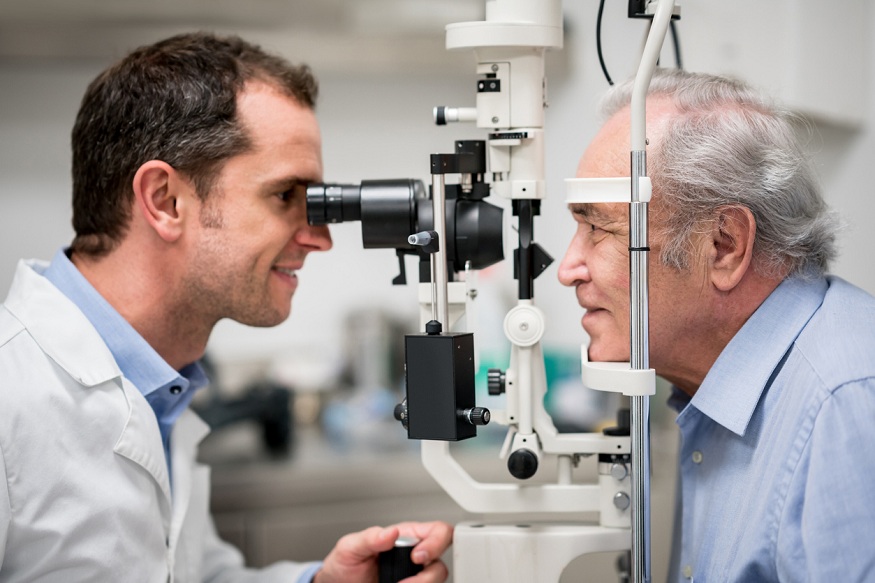
5 Common Causes for Dry Eyes in Austin, TX
Dry eyes can be more than just an occasional annoyance, they can disrupt your daily life, making it hard to focus, enjoy reading, or even work comfortably. Understanding what’s causing your dry eyes is the first step toward finding relief. Whether it’s a temporary issue or a recurring challenge, pinpointing the triggers with the help of an Austin, TX eye doctor can help you manage symptoms effectively.
Here are five common causes of dry eyes and tips on how to address them.
1. Aging
Aging is one of the most frequent culprits behind dry eyes. As we grow older, our bodies naturally produce fewer tears, which are vital for keeping our eyes hydrated and comfortable. People over the age of 50, particularly women going through menopause, are more likely to experience dry eyes due to hormonal changes.
While we can’t stop the aging process, there are ways to manage its effects. Use artificial tears or lubricating eye drops to keep your eyes moist. Many people also find it helpful to use an eye cream with hydrating properties at night. Regular eye exams become especially crucial as you age, so your optometrist can recommend treatments tailored to your needs.
2. Environmental Conditions
The air we’re surrounded by can significantly impact the moisture levels in our eyes. Dry climates, windy conditions, and artificial air from heaters or air conditioners can all trigger or worsen dry eye symptoms. These environments can rob your eyes of moisture, leaving them feeling gritty or irritated.
To counteract this, consider using a humidifier at home or in your office to increase air moisture levels. When you’re outside, wear wraparound sunglasses to shield your eyes from wind and dry air. Also, try to avoid sitting directly in front of fans or vents to prevent constant airflow reducing tear film on your eyes.
3. Prolonged Screen Time
With so much of our time spent on screens for work, socializing, and entertainment, it’s no surprise that prolonged screen time is a major cause of dry eyes. When we focus on screens, we tend to blink less frequently than usual, which prevents tears from spreading evenly across our eyes. This can lead to irritation and burning sensations.
To ease these symptoms, remember to follow the 20-20-20 rule. Every 20 minutes, look at something 20 feet away for 20 seconds to give your eyes a break. Adjust your screen’s brightness and position it below eye level to reduce strain. Incorporating regular, intentional blinking can also help keep your eyes lubricated.
4. Contact Lens Use
Contact lenses, while convenient for vision correction, can sometimes exacerbate dry eyes. Wearing contacts for long hours can cause them to absorb moisture from your eyes, disrupting the natural tear film. This may lead to itchy, uncomfortable, or red eyes throughout the day.
If you notice dry eyes with contact lens use, try switching to daily disposable lenses or lenses specifically designed for people with dry eyes. Give your eyes a break by wearing glasses more frequently, and use rewetting drops approved for contact lenses to maintain comfort. Consulting your eye doctor can also help you discover the best solutions tailored to your needs.
5. Certain Medications
Medications can sometimes contribute to dry eyes as a side effect. Common culprits include antihistamines, decongestants, antidepressants, and even some blood pressure medications. These drugs can reduce tear production or alter the quality of your tears, leading to discomfort.
If you suspect a medication is causing your dry eyes, talk to your doctor. They might suggest switching to a different prescription or adjusting the dosage, if possible. Complementing your treatment with artificial tears or lubricating eye drops can also help alleviate the symptoms.
Conclusion
Dry eyes are a common condition, but that doesn’t mean you have to live with the discomfort. By understanding common causes like aging, environmental conditions, screen time, contact lens use, and medications, you can take practical steps to protect your eyes and reduce your symptoms. With the right care and guidance, you’ll ensure your eyes stay hydrated and healthy, allowing you to focus on the things that matter most without irritation getting in the way.


